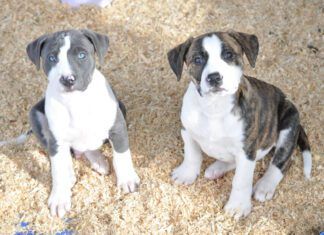Ages ago, I edited a horse magazine, and for a time, published a column written by the noted animal communicator Penelope Smith. I really enjoyed the opportunity to talk to Smith each month, and as we discussed the column, we’d sometimes veer off into a talk about a general topic having to do with animals and our relationships with them. Despite my preconceptions of someone who purports to “talk to the animals” as being nutty, I found Smith to be incredibly insightful, wise, and humorous. She was empathetic and yet practical. I bought several of her books on “interspecies communication” and was fascinated by her accounts of experiences with hundreds of animals.
At some point, I asked Smith that if she was able to telepathically communicate with animals at pretty much any distance, was she ever troubled by the plight of, say, animals locked in a shelter somewhere?
As usual, her answer surprised me. I’m paraphrasing a conversation that took place 20 years ago, but my memory was that she took the position that while it’s indeed sad for us to see any animal in pain or distress or at risk of being killed, that the animals themselves had to take some amount of responsibility for their unfortunate situations. Her belief was that all beings choose their lives and bodies – and that, in the case of (as one example) a dog in a shelter, that individual makes choices every day that could lead him out of a shelter or cause him to be euthanized.
I’ve thought about that conversation countless times over the years – and in the majority of cases, I’ve thought about it in relation to the plight of animals in shelters or in the homes of abusers or hoarders. Aren’t they completely at the mercy of humans, for better or worse? Or are they there as a result of their own actions or inactions?
I think about this when, in the kennels of my local shelter, I come across a super smart, friendly, well-mannered dog who practically grabs me by the lapels and seems to say, “I need help to get out of here. I’ll be a good dog and I want a nice family. Help?” Some dogs seem to inspire, if not demand, that the shelter staff and volunteers put their maximum efforts into finding a good home on their behalf.
But I also think about the concept of “personal responsibility” and free will as they relate to animals, when I come across a dog who is doing nothing whatsoever to help himself get adopted – the one who won’t engage with visitors to the kennels, or who acts like a crazed jack-in-the-box in the “get acquainted” room, or attacks an adopter’s dog or cat within minutes of arriving at a potentially good home. Of course, it makes just as much sense to explain these things as a lack of exposure to humans, a lack of training, and a lack of proper socialization. And while as a volunteer at the shelter, I certainly try to give all the dogs some positive exposure to humans, training, and social opportunities, I sometimes find myself saying to a dog, “Hey, do yourself a favor and behave yourself in front of these nice people who are looking for a family pet, will ya?”
If a dog behaves aggressively toward humans and is euthanized – was this partly his own fault, for failing to control his desire or instinct to bite? Or was it entirely a man-made tragedy, because he wasn’t properly socialized, trained, and managed?
What do you think? Do you think dogs are completely at our mercy in this world for their fate, or do you think they are somewhat (or largely) responsible for their own fates?
Either way, it’s interesting to ponder.





